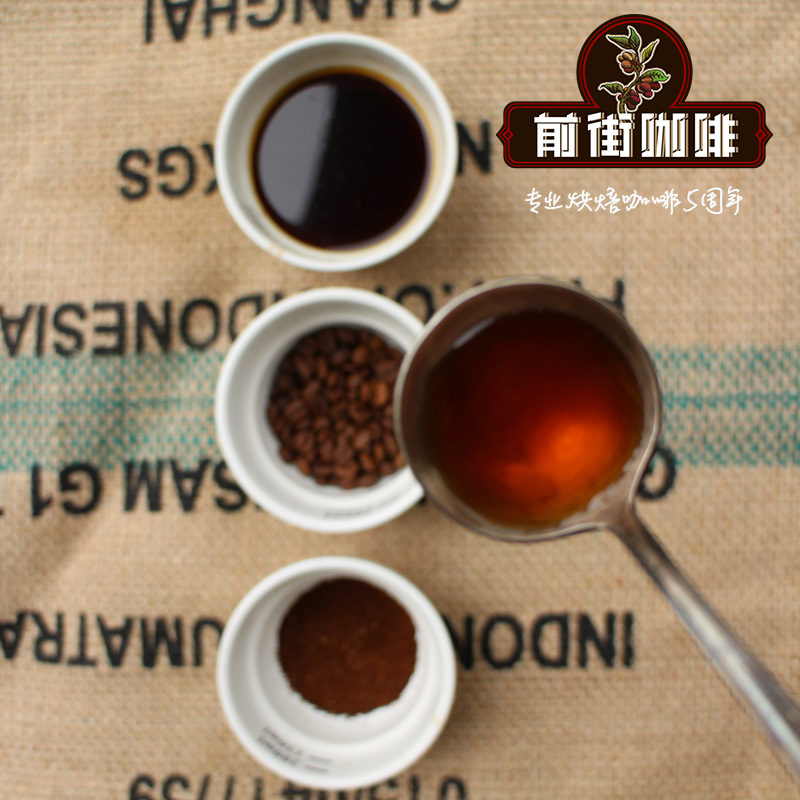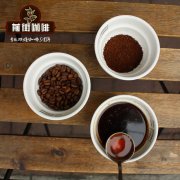Columbia [Bolton Manor] | the historical story of coffee growing in the manor? Bolton Manor Elephant beans

Professional coffee knowledge exchange more coffee bean information please follow the coffee workshop (Wechat official account cafe_style)
Columbia [Bolton Manor] | the historical story of coffee growing in the manor? What is the flavor and cooking parameters of Bolton Manor Elephant beans?
Located in the mountains of La Carmina in the southwest of Antioquia Province, Colombia, this area is located in the northwest of Colombia and belongs to the province near the Pacific Ocean. The harvest season of brown coffee begins in October. Because only ripe red fruits are harvested, the harvest period does not end until January of the following year. The manor insists on collecting only ripe fruits and washing the manor on the same day. The environmental protection treatment method with low water consumption is used for peeling, washing and fermentation, while the residue of the treatment process is used as fertilizer for coffee tree fertilization, and the drying method after fermentation is dried by machine. The raw beans with shells are dried to 12% water content at a low temperature and then moved to the warehouse for storage and classification. After shelling, the women of the manor are responsible for the selection of raw beans after shelling, and select the best raw beans. This part of the manual work does not use a machine.
El Boton estate (Bolton Manor) is located in the mountains of La Carmina in the southwest of Antioquia Province, Colombia. This area is more northwest of Colombia and belongs to the province near the Pacific Ocean. Since 1930, the Herran family. The production of elephant beans (Maragogipe) started on this estate, and even though the production of other new varieties can bring more production than elephant beans, the Herran family still insists on producing only elephant beans to this day, which results in them harvesting only 600bags (70kg each) in a year; in the coffee estate, producing elephant beans alone is a rare persistence. Bolton Manor, which is 4430 feet above sea level, has rich fertile soil of La Carmina, low density of coffee trees and full shade. The harvest season of brown coffee begins in October, and because only ripe red fruits are harvested, the harvest period lasts until January of the following year. Bolton Manor insists on harvesting only ripe fruits and washing on the same day, and uses less water-consuming environmental treatment for peeling, washing and fermentation. The residue from the treatment process is used as fertilizer for fertilizing coffee trees; the drying method after fermentation is dried by machine, and the raw beans with shells are dried to 12% water content at a low temperature, and then transferred to Silo to store and wait for shelling and grading.
If you have any impression, the yield of this kind of beans is already small, and the round beans (peaberry) like beans are even rarer. Please take a look at the picture below. Round beans like beans still look quite big, and compared with other kinds of peaberry, they look like giant babies.
After shelling, the women of the manor are responsible for the selection of raw beans after shelling, and remove the missing objects and screen out the best raw beans. This part of the complete manual operation does not use a machine; in fact, elephant beans are already larger than ordinary flat beans. Complete manual screening is laborious, but it actually makes sense, and the output of this manor is already very small.
Country: Colombia: La Carmina in the mountains of southwestern Antioquia province
Manor: EL BOTON Variety: Maragogipe Grade: Peaberry
Treatment method: washing and fermentation, machine drying in the later stage, number of defects: 1.5d/350g
The cup test results are as follows:
Dry fragrance: aroma rising, with a little floral fragrance, herbage fragrance, flower essential oil
Wet fragrance: caramel, citrus acid
Sipping flavor: sticky oil, citrus plum acid and tropical fruit ripe sweet, sweet and sour, changeable and persistent aftertaste.
Taste description: hazelnut, caramel, chocolate, obvious sweetness, creamy sweetness and lingering finish
Qianjie recommended cooking:
Filter cup: KONO filter cup
Water temperature: 88 degrees
Degree of grinding: small Fuji degree of grinding 4
Cooking method: the ratio of water to flour is 1:14, 17g powder, 25g water for the first time, steaming for 30s, and 238g water for the second time. The extraction time is about 2:30 seconds.
Analysis: there are not many ribs at the bottom of the Kono cup, and the filter paper clings to the filter cup to achieve the purpose of limiting air flow, which can make water and coffee powder have longer contact soaking time in the filter cup and ensure the extraction time and extraction rate of rough grinding. In this way, the coffee powder can be fully extracted, enhance the mellow taste and make the taste more concentrated.
Important Notice :
前街咖啡 FrontStreet Coffee has moved to new addredd:
FrontStreet Coffee Address: 315,Donghua East Road,GuangZhou
Tel:020 38364473
- Prev

What kind of coffee is elephant bean? How is the size of elephant beans measured? How big are the eyes of elephant beans?
Professional coffee knowledge exchange more coffee bean information please follow the coffee workshop (Wechat official account cafe_style) what kind of coffee is elephant beans? How is the size of elephant beans measured? How big are the eyes of elephant beans? The giant elephant beans, which grow above 1500 meters above sea level, are sweet and charming and have a strong aroma. In addition to their eye-catching shape, the giant elephant beans (Maragog)
- Next

New Sagovia Orange Fruit Manor Elephant beans | what is the taste of sun-treated elephant beans? Orange fruit manor
Professional coffee knowledge exchange more coffee bean information please follow the coffee workshop (Wechat official account cafe_style) New Sagovia Orange Fruit Manor Elephant beans | what is the taste of sun-treated elephant beans? The planting advantages of Elephant beans in Orange Fruit Manor? Both Finca El Naranjo Dipilto and Finca Buenos Aires used to be located in the
Related
- Detailed explanation of Jadeite planting Land in Panamanian Jadeite Manor introduction to the grading system of Jadeite competitive bidding, Red bid, Green bid and Rose Summer
- Story of Coffee planting in Brenka region of Costa Rica Stonehenge Manor anaerobic heavy honey treatment of flavor mouth
- What's on the barrel of Blue Mountain Coffee beans?
- Can American coffee also pull flowers? How to use hot American style to pull out a good-looking pattern?
- Can you make a cold extract with coffee beans? What is the right proportion for cold-extracted coffee formula?
- Indonesian PWN Gold Mandrine Coffee Origin Features Flavor How to Chong? Mandolin coffee is American.
- A brief introduction to the flavor characteristics of Brazilian yellow bourbon coffee beans
- What is the effect of different water quality on the flavor of cold-extracted coffee? What kind of water is best for brewing coffee?
- Why do you think of Rose Summer whenever you mention Panamanian coffee?
- Introduction to the characteristics of authentic blue mountain coffee bean producing areas? What is the CIB Coffee Authority in Jamaica?

